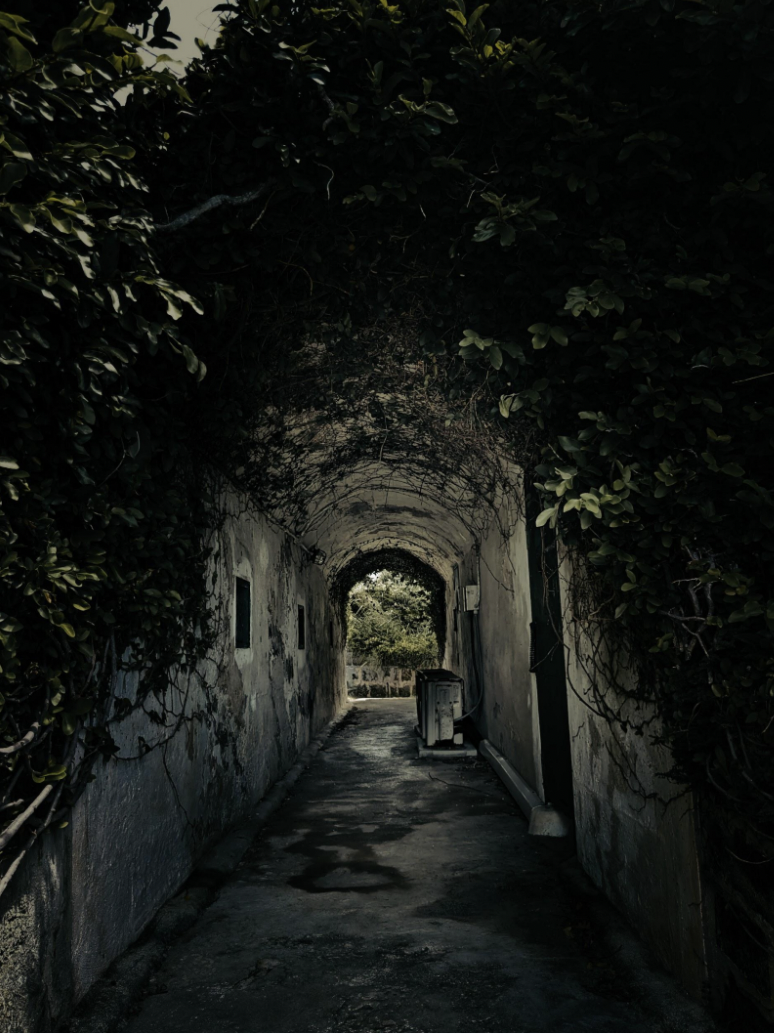
Mythology and Literature: An Interview with Stephanie McCarter
by Julia Glazebnik
Like many of you, I have spent my life absorbed in one mythology or the other. This previous summer I had the wonderful opportunity to attend the Sewanee Young Writers Conference and meet Classics professor Stephanie McCarter, who hosted a seminar in which she discussed her recent translation of Ovid’s Metamorphoses. This talk, paired with questions asked by myself and my peers, spurred me to consider the expressions and interactions of folktales in our lives. I began to discuss this with my fellow board members of the Empty Inkwell, which in turn led to our Issue Three theme, that pushed all of you to ask the same questions I was inspired to. We felt an interview with the professor who started it would be a valuable addition to the phenomenal collection of young writers’ works published in Issue Three. As such, I was able to meet with Professor McCarter for a conversation about classical Greek and Roman mythology in order to better make sense of both our theme, and the echoes of myth throughout our world. In this meeting, I asked her four questions.
Q1: How do you think mythology influences our world and the way we write?
SM: I think it gives us lenses through which to interpret the world. Just thinking about the ways in which we think of nature, mythology influences our perceptions of the natural world immensely. These titles of “Father Sky” and “Mother Earth” go back to our mythical past, and like in Greece we continue to imbue our landscape and trees with divinities. We can also often use these stories to think with, and to conceptualize difficult subjects. For example– war. There's been a lot of movement for veterans to look at great tragedy to process trauma. Depending on how you look at it, myth can have an unlimited amount of influence on us. It continues to affect our writing because no writer is creating in a cultural vacuum; every artist needs to have ideas to grapple with. Typically we are having long conversations with earlier authors and the material that these writers are dealing with is more often than not myth. I think Ovid in particular has given us a particularly rich tapestry of myths to work with. What’s especially significant to me is that we never have to agree with each other in the way we work with these myths– one person can use Ovid in one way, and the next person can come along and use the same stories for a completely different purpose. There is no correct reading of myth or canonical version: there is no “right” or “wrong” way to tell these stories, and I think that is why we continue to be drawn to them.
Q2: What do you think about the role of literature and writing in processing one’s culture & world?
SM: For me, myth helps me trace both positive and negative aspects of our world. I can see longstanding stereotypes as well as great things– for example the explanation of suppressing women's political power has often been given a mythological explanation. In myth women usually are much more clever than men, yet experience such significant hardships, which has a certain fear attached to it. On the other hand, myth helps me feel like I am part of the universal human story. When I look at Ovid lamenting what grief can do to a person, with characters who are not necessarily likable, yet in some ways is tremendously sympathetic when looking at the way grief transforms them. As much as I think some of these stories have been used in unsavory ways, I also think that they connect me to the past in a way that really makes me feel my humanity across time. And it is certainly nice to see these connections that transcend time– I think that is so important. Even with a character like Daphne who likes to go out into the woods and hunt, and therefore is nothing like me because I don’t go out into the woods and hunt– although I do take bird photos–, in some ways we are connected because at the end of the day her story is about a desire for wants bodily autonomy, and that is a fundamental part of freedom which speaks very loudly to me. In terms of my writing, I think that that connection is what draws people to retellings and translations– the feeling that you can survive because you have watched someone else do the same.
Q3: How can young writers interact with contemporary retellings of myths and folktales and use these tales in their own work if “ancientness” is considered inherent to status as mythology? Would a young writer taking inspiration from Madelline Miller’s retellings also be drawing from ancient Greek texts, or is it something different?
SM: Absolutely. Madeline Miller is doing essentially what someone like Ovid or Plato or Euripides was doing that myth. While Song of Achilles becomes a love story between Achilles and Patroclus, which is not really in Homer who focuses more on he exploration of male friendship, she is using them to think through higher forms of platonic love which is deeply erotic. There is no right or wrong version– those two interpretations are equally valuable. Again, myths are dynamic and moving over time, so I don’t necessarily think being influenced by a retelling is somehow being influenced by a secondary version of the myth. I think it’s really cool that if you were inspired by that story you can take up the myth in such a way that you clearly mark a different influence. None of these myths, not even in Homer, do we have an original “true” version of a myth.
Q4: Why is mythology still relevant to us? Has it done more harm than good?
SM: I think it has the power to do more good. Because we always are going to write myths to explain what we are, and in a way we shape myth more than myth shapes us. So its an interesting mirror– a way to see ourselves transformed. The Greeks were writing myths to justify their world view, but they also wrote about things that they found deeply terrifying. The idea of the powerful woman was something particularly scary at the time, and while this archetype has been passed down, it doesn’t have to be scary anymore. We can take this idea and turn it on its head so it becomes something powerful in today's cultural moment. There's a reason why so many women writers in particular are turning to these myths, these same myths which initially justified their exclusion from power, they are turning to these stories to celebrate women who were powerful and intelligent and savvy and clever and all of these things. I don’t know if myths are actively harmful, but they certainly reflect cultural attitudes, and as cultural attitudes change we can continue to transform myths. This is what keeps mythology relevant– if they were static and didn’t change over time then they would have a great potential for harm, but I also don’t think they would survive very long.
Stephanie McCarter has taught at Sewanee since 2008. She received a BA (2000) in Classics and English from the University of Tennessee at Knoxville and an MA (2002) and PhD (2007) in Classics from the University of Virginia. At Sewanee she teaches Greek and Latin courses at all levels as well as courses in translation, and she is active in Sewanee’s interdisciplinary Humanities program. Outside of the classroom, her current major interest is in literary translation. She has published verse translations of Horace's Epodes and Odes (University of Oklahoma Press, 2020) and Ovid's Metamorphoses (Penguin, 2022), and she is currently at work on a new translation of Catullus. Her academic research centers on the Latin poetry of the late Republic and early Roman Empire. Professor McCarter additionally finds great value and enjoyment in writing for non-academic audiences and has had essays appear on Classical topics in venues such as Eidolon, Literary Hub, Electric Literature, and The Washington Post.
Julia Glazebnik is a reader and poet from New York. Drawing inspiration from artists such as Ocean Vuong, Victoria Chang, Tim O’Brien, and many others, her work can be found in JAKE, Eunoia Review, Blue Marble Review, and a few other corners of the internet. She has attended multiple young writers workshops, the most recent one being the Sewanee Young Writers Conference, and has also had her work recognized by the Scholastic Art and Writing Awards numerous times. When free, you can find her baking lemon scones, playing bass, spending time with her cat, or watching murder mysteries. Contact her at her email jglazebnik@yahoo.com, or her instagram @juliaglazebnik.
